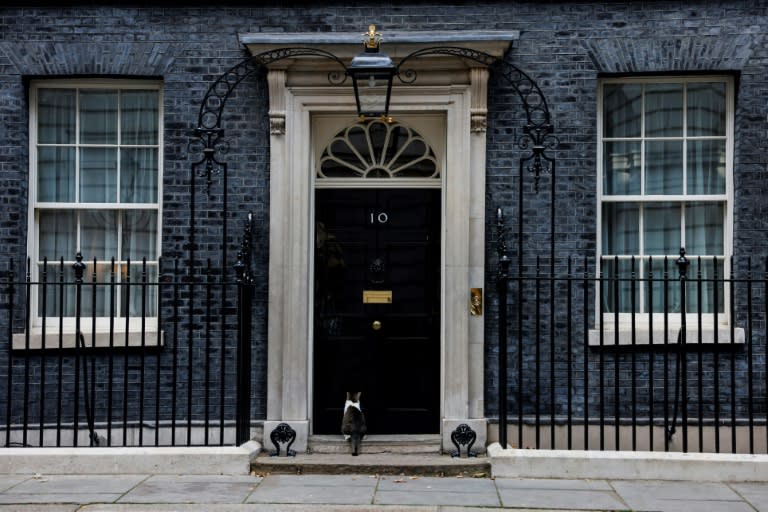UK election picks over 14 years of Conservative rule

Fourteen years of Conservative party rule in the UK have seen Brexit, Covid, economic turmoil and political scandals, leaving many Britons worse off and disenchanted.
During that time, the Tories have gone through five prime ministers -- including three in four months in 2022 -- and look unlikely to secure a fifth term on July 4.
With polls indicating a 20-point lead for Labour refusing to budge, Rishi Sunak and his colleagues have begun warning voters not to give Keir Starmer's party a "super-majority" in parliament.
But public confidence in politicians has evaporated and the campaign is doing nothing to restore it.
Tim Bale, professor of politics at Queen Mary University of London, attributes the erosion of trust to the aftermath of the 2008 global financial crisis.
"You had a government that came in 2010 promising there'd be no swingeing cuts, only to unleash austerity on the country, which has crippled public services long term," he told AFP.
Brexit -- and Boris Johnson's promise to "get Brexit done" -- was pitched as a chance to get back to "bread and butter issues" such as the economy, healthcare, education and policing.
But Bale added: "The Conservatives... then failed completely to deliver on any of the promises on those issues."
- Brexit -
The referendum on European Union membership in 2016 saw 52 percent of Britons vote "leave" and 48 percent "remain".
David Cameron, prime minister since 2010, quit after the result came in. His successor, Theresa May, was unable to get parliamentary approval for her Brexit divorce deal. She resigned in 2018.
Boris Johnson's landslide election win in 2019 allowed him to push through his Brexit plan, and the UK left the EU the following year.
But he was undone by Covid, with his government initially under-estimating the pandemic, and revelations of lockdown-breaking parties at Downing Street contributed to his downfall in July 2022.
Bale attributed the "dire state" of the Tories currently to Johnson and Truss, who shattered its reputation for integrity and economic credibility.
Truss spent only 49 days in power, but her plan for unfunded tax cuts to tame sky-high inflation spooked the financial markets and crashed the pound.
Sunak's time in power since October 2022 has seen widespread public and private sector strikes sparked by the high cost of living.
Annual inflation has now slowed to 2.3 percent, but salaries have not kept pace and are stuck at 2010 levels.
- Pessimism -
Sunak has tried to put a gloss on the economy but growth and productivity are stagnant and the tax burden is at its highest level in 70 years.
He has even admitted that buying a house had got harder, in an remarkable admission for a party that has had home ownership as a central tenet since the days of Margaret Thatcher.
A major worry for an ageing population is the state-run National Health Service (NHS), with millions awaiting treatment due to years of staff shortages and under-funding.
The gap between rich and poor has widened since 2012, making the UK one of the most unequal countries in Europe and the G7, according to the OECD.
With less than three weeks to go to polling day, there is a prevailing mood of pessimism. Voters want change but doubt that their political leaders can provide it, one survey said.
More than one third (37 percent) believe the economy will continue to get worse against just over a quarter (28 percent) who say the opposite, the Ipsos poll suggested.
Only one in five (20 percent) said the country was going in the right direction.
As for the national psychodrama, Brexit, more than half (53 percent) said it had had a negative effect. Yet the two main parties are running shy of talking about it.
- Positives? -
Sunak points to low unemployment, a drop in crime and top marks for British students for reading in international rankings as proof that not all is bad.
Others mention gay marriage, introduced by Cameron in 2014, and the UK's role leading efforts to tackle global warming by greater use of renewables.
But the election is being fought more on the NHS and cost of living, while the Tories, under threat from Nigel Farage's Reform UK, want to talk tough on immigration and promise tax cuts.
Labour are enjoying the Tories' discomfort but reality could soon bite, said Anand Menon, from King's College London.
"There is no doubt Keir Starmer is inheriting a very difficult financial and economic situation," he said.
bd/phz/ach/smw


